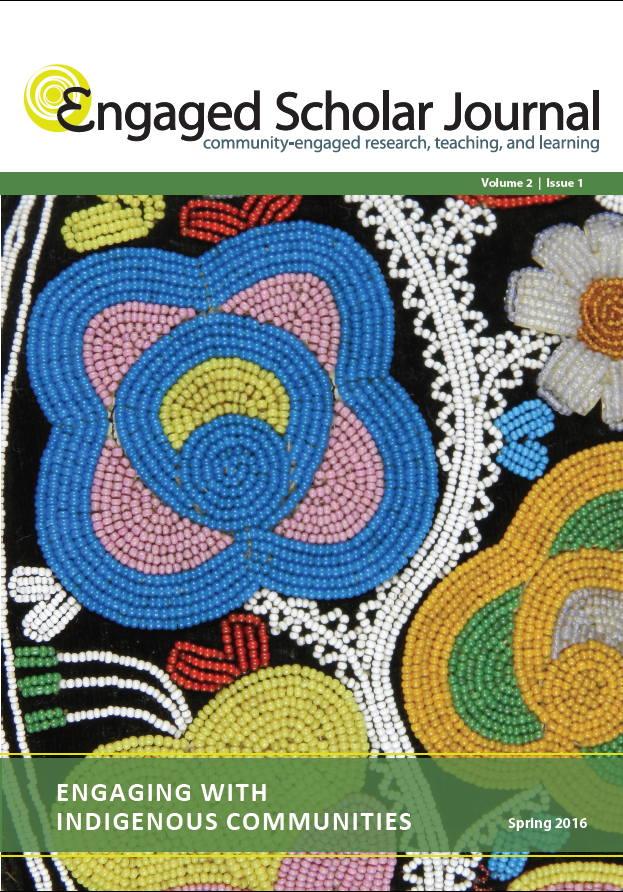The Community Readiness Initiative in Kugluktuk, Nunavut: The Challenge of Adapting an Indigenous Community-Based Participatory Framework to a Multi-Stakeholder, Government- Designed Project Environment
DOI:
https://doi.org/10.15402/esj.v2i1.214Keywords:
Nunavut, resource development, community-based participatory research, collaborative research, capacity building, capacity exchange, academic consultantsAbstract
In April 2014, McMaster University and Carleton University collaborated with Kugluktuk, an Inuit community in Nunavut to survey community views on resource development and produce a larger community report. This was part of a Community Readiness Initiative (CRI) piloted by the Canadian Northern Development Agency (CanNor) to assess the socio-economic needs of communities across the North prior to mine development. Kugluktuk is the first of seven communities across Nunavut, the Northwest Territories, and the Yukon to produce their final report. Universities have started to play an important role in developing a ‘third mission’ whereby researchers are encouraged to collaborate with non-academic organizations. This collaborative approach can include contract research and consulting, as well as informal activities like providing ad hoc advice and networking with practitioners. Working as an academic in this environment can create tensions, but it can also create opportunities to foster and ensure meaningful input and consultation from a variety of stakeholders. This paper focuses in depth on the collaborative nature of the CRI process that began in April 2014 and ended in August 2015 with an emphasis on the community-based participatory research approach that we took. With insights that apply equally well outside of the Kugluktuk context, the approach that we took also provides a useful model for engaging with issues on mining and resource development opportunities.
Downloads
Published
How to Cite
Issue
Section
License
Authors who publish with this journal agree to the following terms:
- Authors retain copyright and grant the journal right of first publication with the work simultaneously licensed under a Creative Commons Attribution License CC BY 4.0 that allows others to share the work with an acknowledgement of the work's authorship and initial publication in this journal.
- Authors are able to enter separate, additional contractual agreements for the non-exclusive distribution of the journal's published version of the work (e.g., post it to an institutional repository or publish it in a book), with an acknowledgement of its initial publication in this journal.
- Authors are permitted to post their work online (e.g., in an institutional repository or on their website) after the publication of their work in the Engaged Scholar Journal.
- Please note that while every opportunity will be taken to ensure author participation in the editing process, due to time constraints final copyediting changes may be made before publication to ensure APA adherence throughout all submissions.




